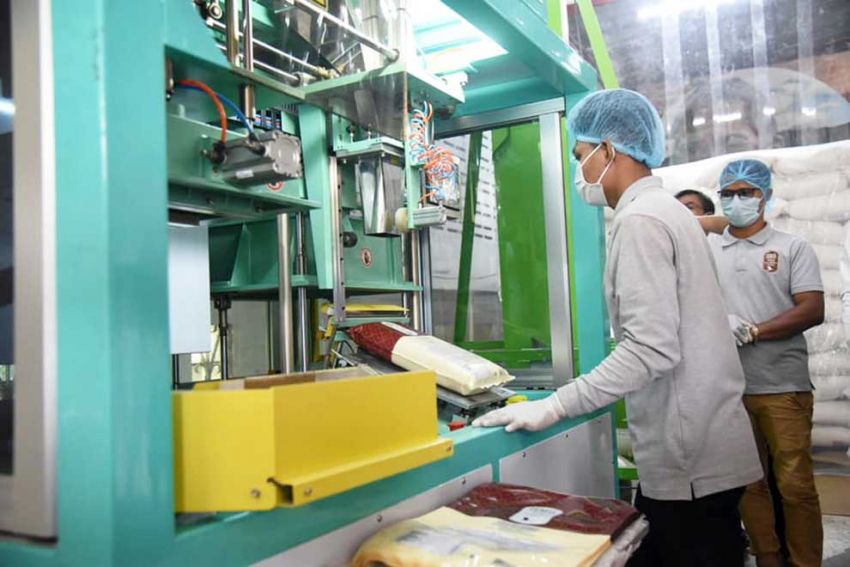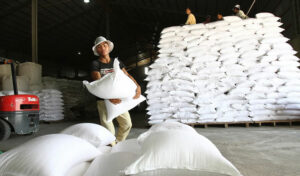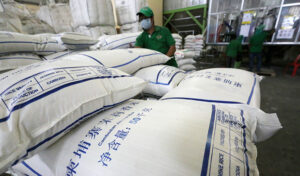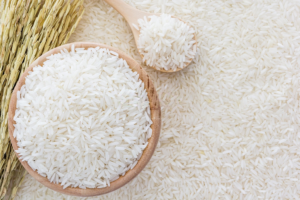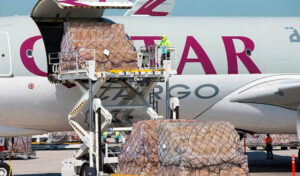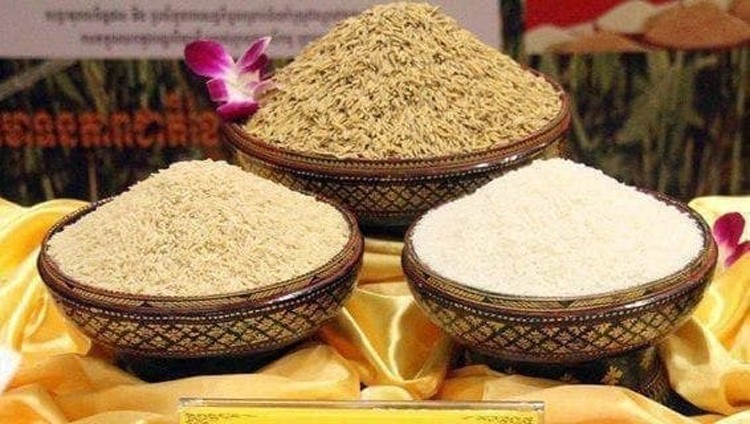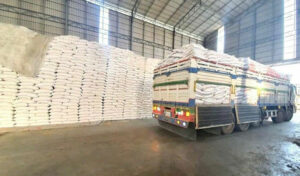Ibis Rice warehouse officially opens
The Ministry of Environment and Wildlife Conservation Society (WCS Cambodia) have officially opened the IBIS Rice Conservation Company warehouse.
The warehouse will store rice for the IBIS Rice Conservation Co Ltd (IBIS Rice) as part of their efforts towards the conservation of the endangered Giant Ibis, which they primarily undertake by purchasing organic jasmine rice at premium prices from farmers who commit to both protecting the forest and stopping poaching.
An opening ceremony took place at the warehouse, located in Phnom Penh’s Phsar Doeum Thkov district, on December 22.
Environment minister Say Sam Al said the rice’s winning combination of being both wildlife-friendly and certified as organic would ensure that it fetched premium prices in high value markets around the world.
Sam Al was hopeful that the company would continue purchasing the rice from farmers who have fully embraced the goals of the project and were rigorous in their implementation of it at a high price and that the ministry will continue to support the project in the future.
“The minister encourages farmers living within the protected areas to join it and actively support conservation efforts. I would suggest that WCS and Sansom Mlup Prey Organisation [SMP] expand the project to other protected areas and encourage the Cambodian people to support IBIS rice,” he said.
In 2017, the IBIS Rice was incorporated by WCS Cambodia to better fulfil the market potential of the jasmine rice their environmental conservation programme had been purchasing from Cambodian farmers by marketing it internationally as a premium consumer product while also scaling up its production.
IBIS Rice now works with 1,500 wildlife-friendly farmers and pays them a premium of 50 per cent above market price for their organic and wildlife-friendly jasmine rice.
According to a joint press release from the environment ministry, WCS Cambodia, IBIS Rice and SMP, the farmers taking part in the programme have committed to no logging, no hunting and no use of chemicals — thereby protecting the natural ecosystem and its wildlife.
“In 2009, WCS, with the support of the Royal Government of Cambodia, developed the Ibis Rice project as a conservation tool. The objective was to incentivise local communities to engage in conservation through the purchase of organic jasmine rice at a premium from farmers who committed to protecting the forest and to stop hunting,” the press release said.
It said the project has improved local livelihoods while addressing the principal threat to critically endangered species, including the Giant Ibis and their habitat, through the conversion of forest and wetlands to rice fields.
The Giant Ibis is the largest species of ibis worldwide and, owing to its rarity, holds near-mythic status for bird-watchers and conservationists.
The majestic bird is classified as critically endangered, predominantly due to the effects of human encroachment on its natural habitat and hunting.
The remaining population of these birds is concentrated in northern Cambodia, according to the environment ministry.
Ibis Rice CEO Nick Spencer said the enterprise was, of course, named after the Giant Ibis, Cambodia’s national bird.
Spencer added that customers support the company’s values and appreciate the quality of its wildlife-friendly rice. They also like that the rice is produced in accordance with organic principles.
But he felt that the real key to their success and retaining their customer’s ongoing support was the fact that their product is the direct result of ongoing conservation efforts that also bring about an improvement in the farmers’ livelihoods.
“To deliver the consumer a product they can trust, we have strict compliance [procedures] the farmers need to follow, and in turn our business can pass that value back to farmers. However, there are pressures and risks to this way of farming [such as] when forest is cleared and chemicals are used by newcomers to the communities,” he said.
WCS country programme director Ken Serey Rotha also said that achieving conservation work requires all stakeholders to work closely with communities in wildlife sanctuaries to ensure that their aspirations are met.
“The habitat within the wildlife sanctuaries where communities of people live can be successfully protected. IBIS Rice is a globally recognised example of that,” said Serey Rotha.
“At the same time, in order to succeed at conservation the communities within those wildlife sanctuaries must be taken care of and protected as well, and their needs must not be neglected,” he said.
According to the environment ministry, the project has contributed to improving the livelihoods of participating farmers as well as reducing deforestation by 75 per cent in areas where those farmers live and cultivate rice. Phnom Penh Post

